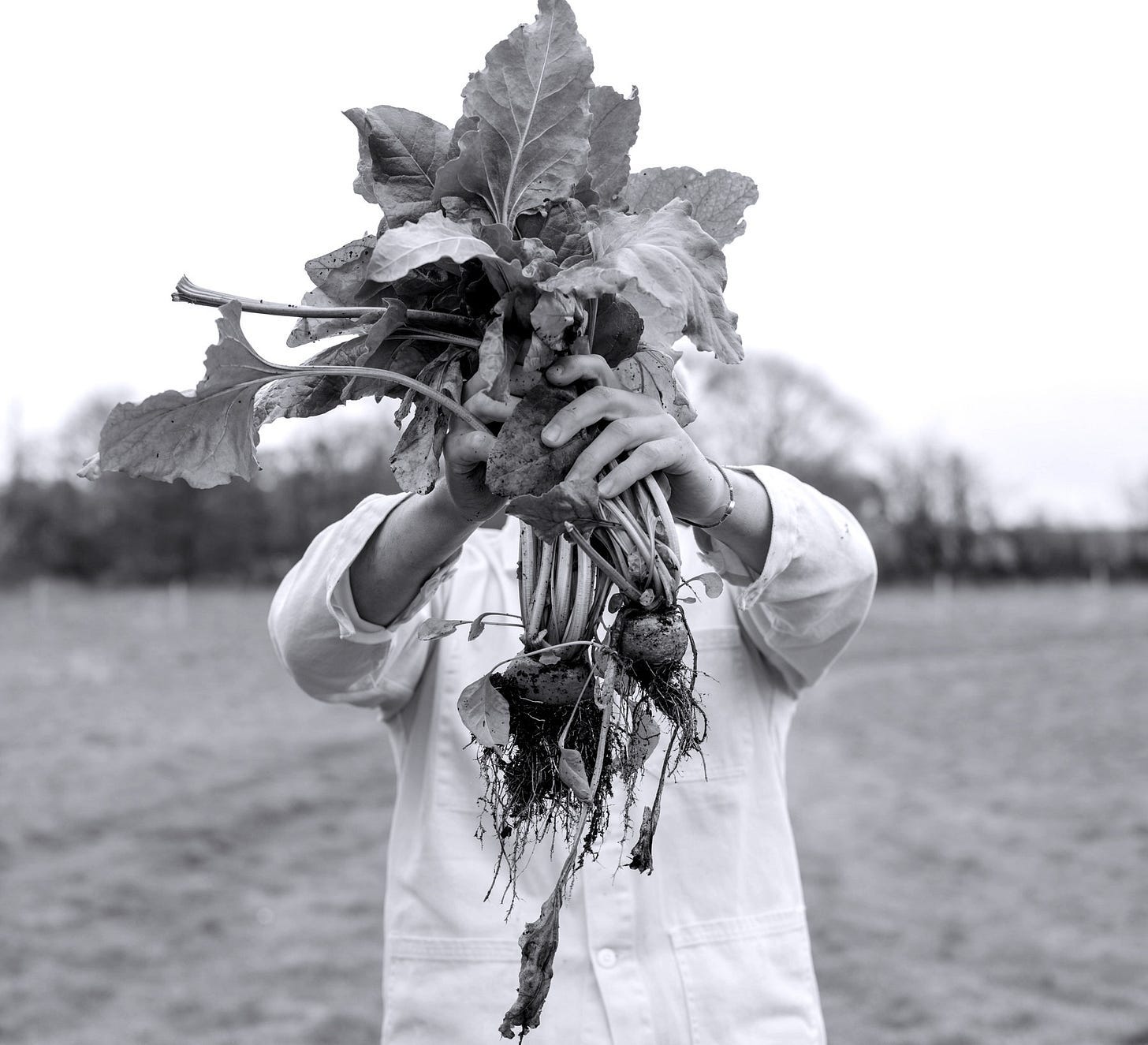I want to try something a bit different this time, taking us off the farm for a second to explore this question, because it’s been coming up a lot for me recently. I wasn’t good at the written subjects in school so I'm not here to construct arguments and build discussions; I mainly want to explore my thoughts, and I’d be really interested in hearing what others think.
To start with, when I refer to natural food I mean food that is grown in healthy ecosystems without chemicals, that supports our environment and that supports our health. Food that you won’t put down when you find out how it was made, that is not ultra-processed and that has real-life ingredients.
It’s quite heartbreaking that we live in a country where the majority of people are born into a life pre-destined for poor health just because they don’t have access to natural food. Actually - it’s totally fucked up.
We all know natural food is expensive; you often choose vegetables sprayed with pesticides, and meat from a factory, not because you want to, but because it’s cheaper than the natural option. So the immediate impression is that there is a financial problem.
There's a lot at play behind the price of food in the UK, and most of it is out of our hands: taxes on farmers, laws on importing, laws on exporting, supermarkets, supply chains, distribution methods, farming subsidies, all the way through to what’s happening in the wider economy whether it’s immigration or land prices.
Something more tangible that I think will reduce the price of natural food is the evolution of scalable, natural farming methods. Which is what we are trying to do on our farm. For example, I believe that once our biodiverse forest systems are more established, they will be more efficient than current organic, field-scale rotations.
I also think that “non-natural” farming methods will start to see continuously reduced yields from increasingly degenerated soils which, alongside the already rising costs of synthetic fertilisers and pesticides, will increase the price of “non-natural” food on the shelf; closing the price gap between natural and “non-natural” food.
However, I believe that deeper than the financial problem in food accessibility lies a cultural one. I found a series of stats that explains this quite quickly: In the UK we spend around 10% of our household income on food whilst in Spain they spend 15%, in Italy 17%, and in France 18%. Today adult obesity in Spain is at 19%, in Italy 12% and France 11%, in the UK it’s now at 30%.
The stronger your food culture, the more you value what you choose to eat. If you understand the profound impact food has on your health, on your happiness and the future of your planet, you quickly realise that spending more time or money on your food is probably one of the best investments you could ever make. I want to emphasise the time, because often, when trying to eat better food, spending more time on it is more important than spending more money.
Across the world, the culture for proper food is under attack (including in Spain, Italy and France). I feel the problem is that the defences in the UK are particularly weak, and that this weakness is more dangerous than we think. An ignorance of food can be lethal; it makes us powerless pawns in the game of the large ultra-processed food brands and the poison-farming companies - people who do not have our health or our planet in their best interests.
I believe that if we want to access better food, one of the most powerful things we can do is increase our knowledge and connection to it. Knowing more about our food allows us to choose the right food, in the face of hundreds of millions of pounds of marketing spent on getting us to choose the wrong food.
With rising awareness, many of us are going through changes in our relationship with food. Through becoming aware of the problems in industrial food, we research, explore and seek to understand how to eat more naturally. We begin to learn about where our food comes from; we start reading the ingredients on the back of the packet and spending more time in the kitchen; we start to travel further to go to a farmers market or order produce online directly from a farm; we realise that it’s worth spending the extra pound on a natural vegetable that is higher in nutrition, to save spending two pounds later on in supplements and medicine; some of us maybe even find small spaces to start growing our own food. Slowly but surely, through this process we create our own access to natural food by improving our own personal food culture. Not by getting richer.
I believe it’s empowering to think that through propagating a stronger food culture we are increasing access to natural food in this country. Because for once, it's something in our hands - something we can change, starting today. One meal at a time, we can contribute to our food sovereignty, to regenerating our earth and to saving our health. This is part of what I like to call Nature’s Food Movement.
08/05
Matteo





This approach would save the NHS millions! We must help schools spread the message.
👏